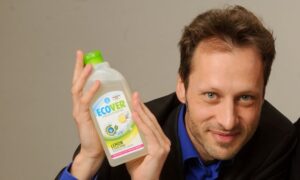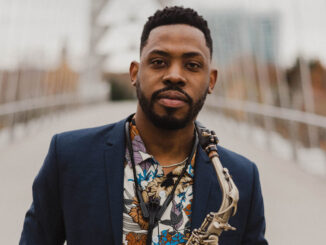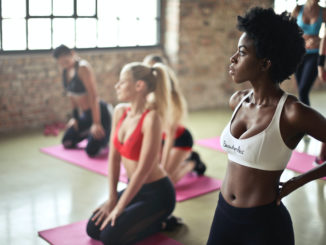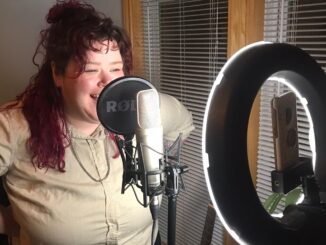Meaningful Food Boxes
Kieran Alkerton is the founder of Crisper Kits. During the COVID-19 pandemic, he’s been working at food banks and donating meal prep kits.
What shocked him most, has been the amount of plastic used. Each individual item per box is wrapped in some sort of plastic. It bothers him, knowing it takes up to 450 years to decompose certain plastics in a landfill.
This has been the motivation behind his creation of Crisper Kits: reusable meal prep kits made of plant-based foods with no plastic.
Alkerton is on a mission to eliminate plastic waste by helping beginners take the first step toward an eco-friendly lifestyle.
Reusable Meal Prep Boxes… and So Much More
Kieran Alkerton has been on a quest to stamp out waste. He has found a neglected niche involving plastic and he comes up with a new way to eliminate it.
Welcome to renewable boxes! Alkerton says people can save money and the environment at the same time. Instead of throwing out environmentally harmful wrappers, he wants consumers to reuse his boxes, over and over again.
He says it’s all about rethinking our approach to waste. It’s also important what’s inside these boxes. Alkerton says plant-based food is the way to go. This young entrepreneur has embraced the concepts of a circular economy and wants others to follow his lead.
Planet Conscious Professor
There are 300 million tons of throwaway plastic that pollute our planet each year. Hard to believe, only 9% of plastic is actually recycled.
Certain plastics take hundreds of years to decompose in landfills. While they are breaking down, toxic chemicals are released that harm and even kill species below and above the ground. Chemicals from plastics seep into water resources that have harmful and sometimes deadly consequences to species that drink from them.
Chris De Souza is a professor at University of Toronto. He specializes in environmental sustainability. His goal? To do his part in saving the planet… one meal kit at a time.

From Seneca to Artevelde
Let’s head to Belgium to see how local initiatives, an ocean apart, are contributing to a global circular economy by designing out waste, repurposing or regenerating.
OHNE: Packaging-Free Store
There’s no doubt that recycling is a step in the right direction. Still, the production process of recycled packaging contributes to the pollution of the planet. In fact, recycled packaging might not be as durable as thought.
Although 79% of the trash is recycled in Belgium, it still has to be transported to a sorting centre. After that, the materials have to be processed into new packaging. This consumes a lot of energy and adds to CO2 emissions. The finished packaging is then, once again, transported.
OHNE is trying to find an answer to this problem.
The Ghent-based store has been open since 2015 and was the first zero-waste store in the area. OHNE focuses on three core values: packaging-free, biological and local.
This means that customers are supposed to bring their own reusable containers or packaging. In the grocery store, shoppers first weigh their packaging and then fill it up with the products they need.
Besides the packaging, OHNE tries its best to sell as many biological and local products. This process is quite time-consuming since they have a lot of different suppliers, as Sophie explains.
Packaging-Free But Not Plastic-Free
They told Marie Claire magazine they started with five people who wanted to start a store like Ohne. The idea originated in North America, where packaging-free shops have been in fashion for a while.
Ohne's goal is to make packaging-free, organic and local alternatives accessible to everyone. 90% of their products are organic. It started with essential products and has expanded to care products and soaps.
Ohne is packaging-free, but if you don't have any jars with you, you can rent a jar from Ohne or buy a compostable bag.
When products are about to expire, they are sold at a lower price. Zero waste is their motto. Plastic can still be found in the store, but sparingly.
To Recycle or Not?
There are between 100 and 150 million tonnes of plastic in the oceans and seas, according to Zero Plastic Rivers. Most people are aware we need to do something about it. Packaging-free shops are becoming more popular and the number of Ohne shops is on the rise.
Other initiatives are also emerging to use as little plastic as possible, Plastic-free in the month of May, being one example in Belgium.
Living plastic-free is a big step for many families which is why they often take intermediate steps to live sustainably such as recycling certain items.
In a Knack article, Tom Domen says we have been aware for years that we use too much plastic. "Of all the plastic that is made, only 2% is recycled," says the boss of Ecover which makes ecological cleaning products.
He says we shouldn’t use recycling as an excuse to use plastic.
Fun fact, plastic can optimally be recycled five to six times but after that, it becomes unusable, according to Domen.

Meet the Team

Zoe Johnston

Gerry Sofos

Pam Mungwatana

Jonas Hollevoet

Isabeau Geeroms

Simon Rach





Be the first to comment